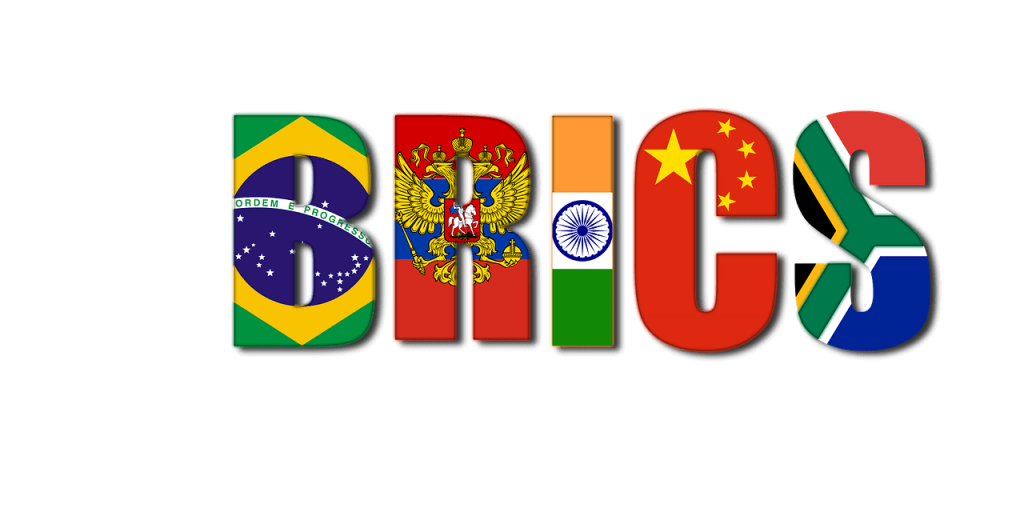
You know, sometimes it feels like the world stage is dominated by the same players: the U.S., the EU, and a few other big shots. But have you noticed how the BRICS nations—Brazil, Russia, India, China, and South Africa—are making waves lately? These five countries, often seen as a collective voice for the Global South, are low-key shaking things up in global politics and economics. And honestly? I’m here for it.
A Quick BRICS Backstory
BRICS isn’t just a fancy acronym (although it does sound cool, doesn’t it?). The term was first coined in 2001 by an economist at Goldman Sachs, who probably didn’t realize these nations would actually band together and start hosting summits. Fast forward to today, and BRICS isn’t just about economic stats—it’s a legit geopolitical force.
With over 40% of the world’s population and nearly 25% of global GDP (and climbing), the BRICS nations are a powerhouse. They’re not just sitting around waiting for invitations to the “big boys’ table” anymore. Nope, they’re carving out their own space—and let’s be real, it’s about time.
Why Are the BRICS Nations So Important?
Here’s the thing: these countries represent a shift in global power dynamics. For decades, the West called the shots, but the BRICS nations are proof that multipolarity is the future. And each member brings something unique to the table:
- Brazil: The agricultural and natural resources giant. Seriously, have you seen how much coffee and soybeans they produce?
- Russia: Love it or hate it, Russia’s energy exports are crucial. Plus, they’re a major player in defense tech.
- India: The tech and service sector powerhouse with a booming youth population. (And Bollywood. Let’s not underestimate Bollywood.)
- China: Manufacturing and global trade wizard, driving the Belt and Road Initiative that everyone’s talking about.
- South Africa: A gateway to Africa’s untapped potential, rich in minerals and strategic influence.
Together, they’re like the Avengers of the emerging markets—each with their own superpower, working toward a common goal.
Challenges? Oh, Plenty
Of course, it’s not all rainbows and unicorns. BRICS has its share of growing pains. Let’s talk about it.
- Internal Rivalries: India and China haven’t exactly been besties, thanks to border disputes and geopolitical tensions.
- Economic Disparities: China’s economy alone dwarfs the combined GDPs of the other BRICS nations. It’s like a group project where one person does 80% of the work.
- Global Perception: Some folks still see BRICS as a loose club rather than a cohesive unit. And let’s be honest, sometimes it does feel like that.
But hey, no family is perfect, right?
My Take on BRICS Nations
Here’s where I get a little personal. I think the BRICS nations are a breath of fresh air in a world dominated by Western narratives. They’re pushing for reforms in global institutions like the IMF and the UN, which—let’s face it—are long overdue. But I also wonder if they can overcome their internal divisions to truly become a united force.
It’s exciting to see countries like India and Brazil take on leadership roles and challenge the status quo. And while it’s easy to be cynical (because, politics), I can’t help but root for them. After all, a more balanced world benefits everyone, right?
What’s Next for the BRICS Nations?
The future is bright, but it’s complicated. Expanding their membership to include other nations like Argentina or even Saudi Arabia (there’s been talk) could give BRICS even more clout. But with great power comes great responsibility—and a boatload of challenges.
One thing’s for sure: the BRICS nations are here to stay. Whether they evolve into a truly cohesive bloc or remain a platform for dialogue and cooperation, they’ve already left their mark on the global stage.
Final Thoughts
The BRICS nations are a fascinating mix of potential, ambition, and, let’s admit it, a little chaos. They’re not perfect—who is?—but they’re a reminder that the world isn’t static. Power shifts, new alliances form, and underdogs rise.
What do you think? Are the BRICS nations the future of global leadership, or just another passing trend? Let’s talk about it in the comments. (See, I’m already channeling my inner blogger.)
And hey, if nothing else, they’ve given us a great acronym. BRICS—it just sounds solid, doesn’t it?

